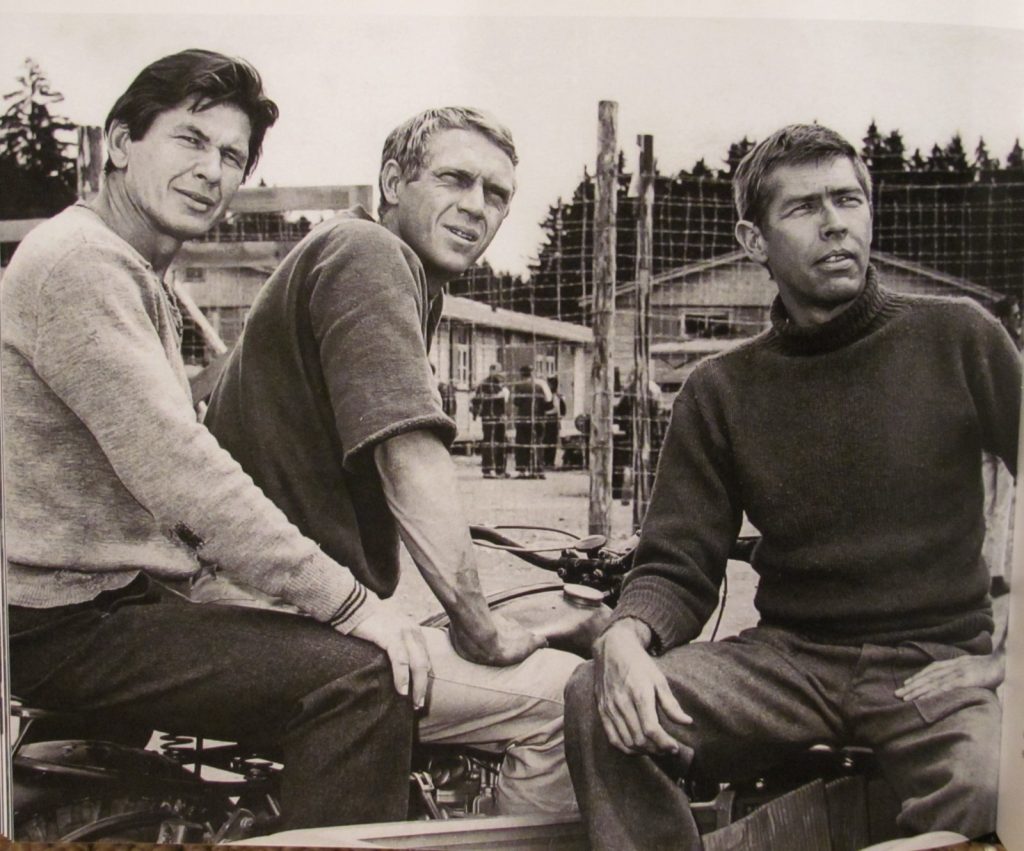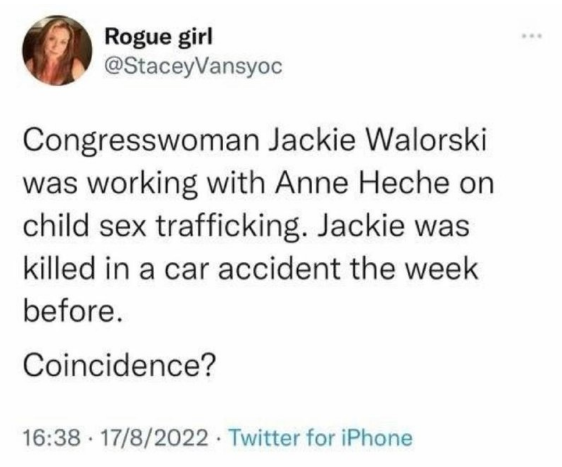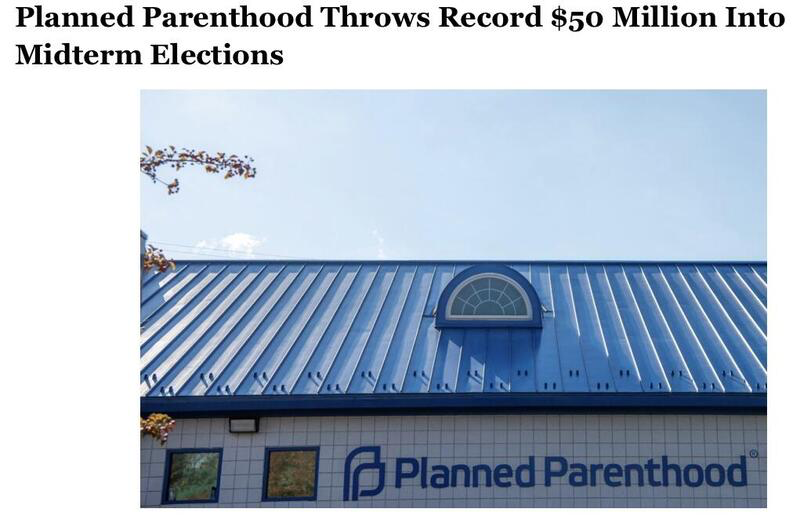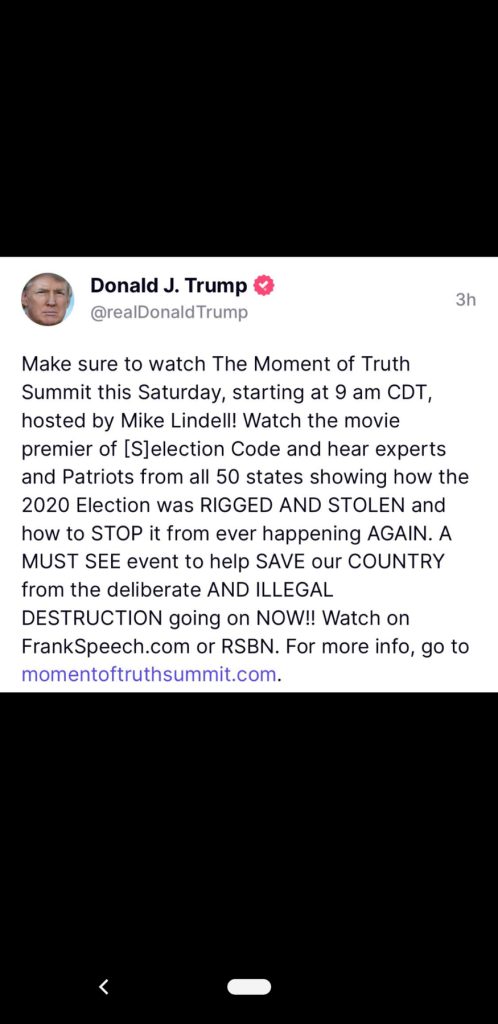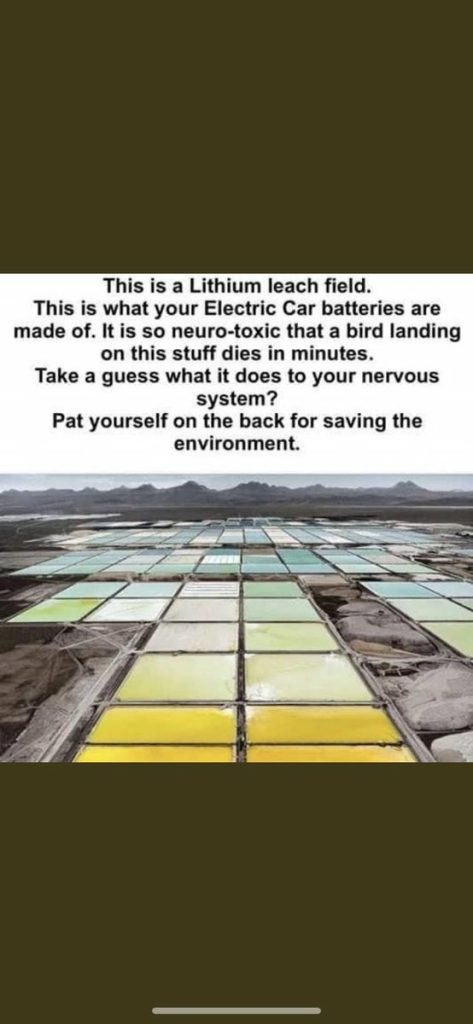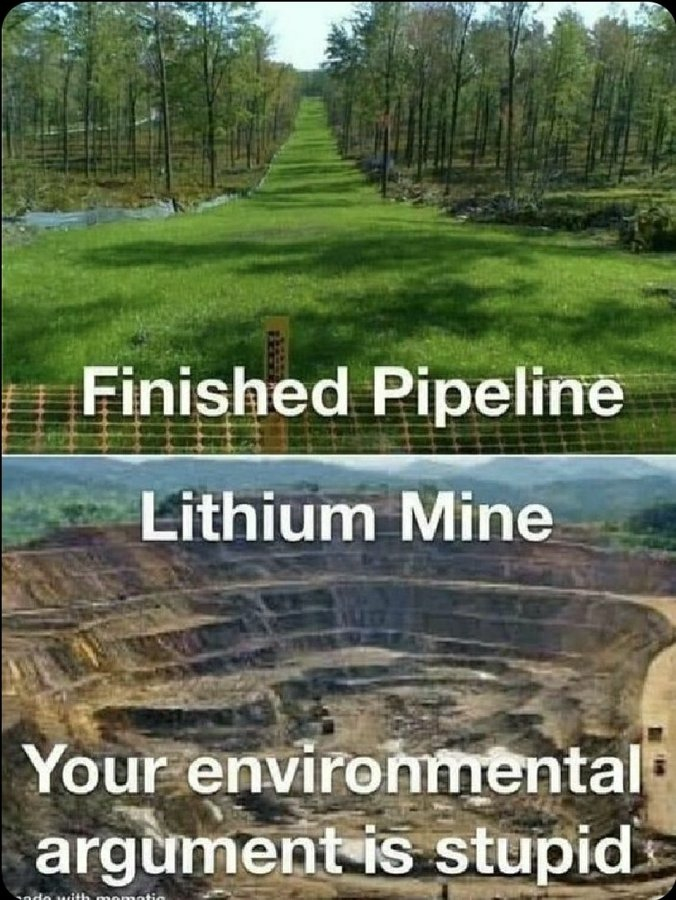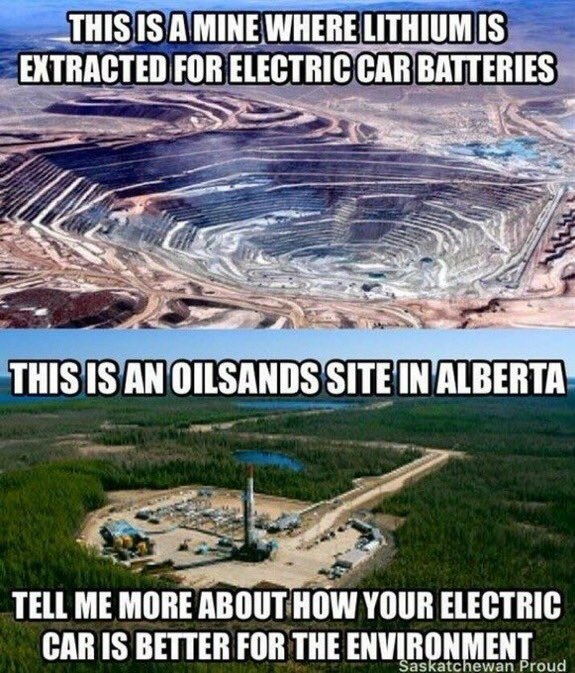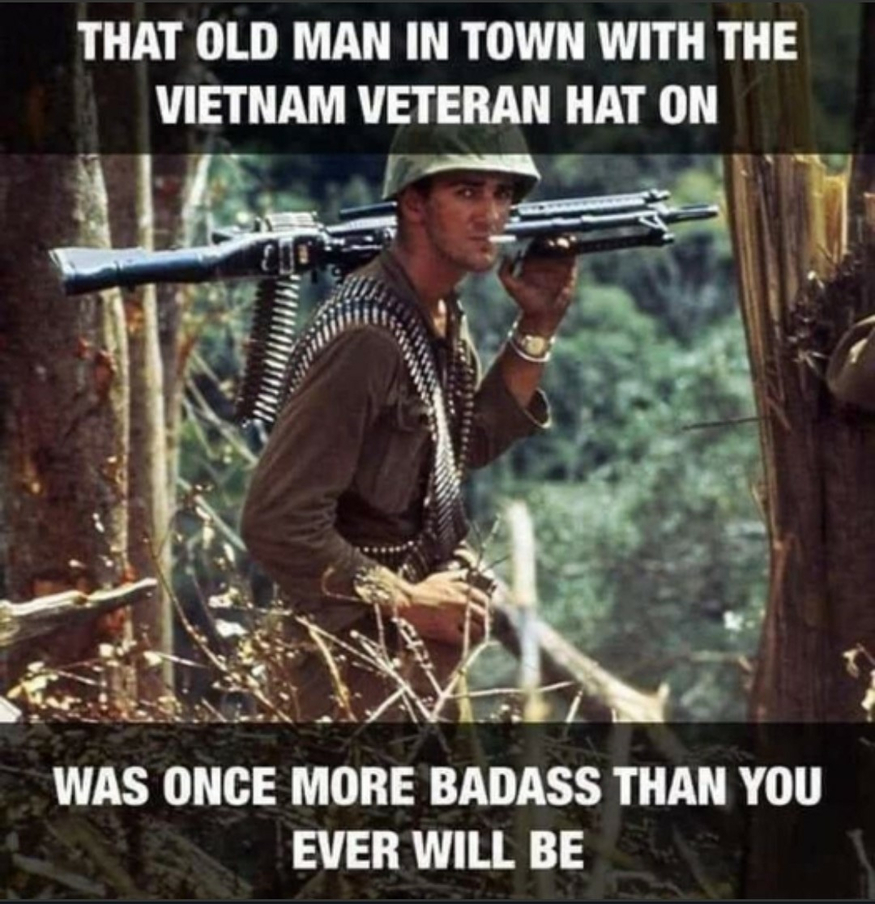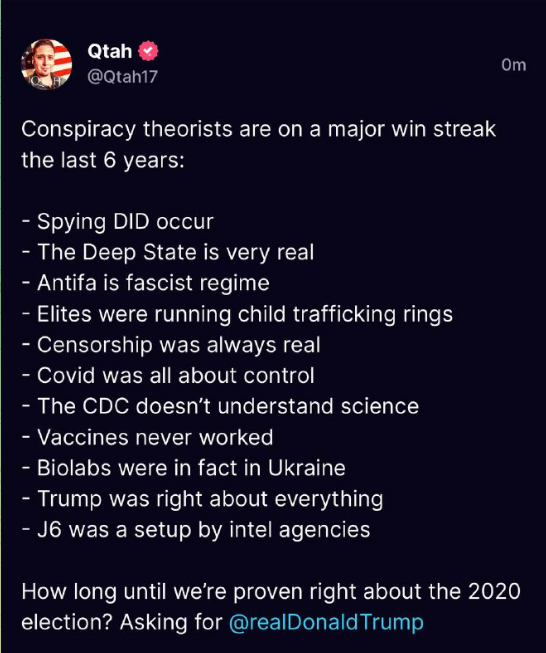In cases of religious mass suicide/homicide, such as Jonestown, Heaven’s Gate, and Aum Shinrikyo, it is very difficult to regain a humanitarian understanding of the key participants after the infamy of defining events sears the conscience and redefines reality.
Even more difficult, however, is the opposite – to BEGIN to think the unthinkable and speak the unspeakable, that we all seem to know is true, but which we can only comprehend in principle, not in reality.
It is almost impossible to leave the past where we could trust – and yet, we were warned about this.
Who are we taught to trust the most?
This will not be easy.
The END.
Q
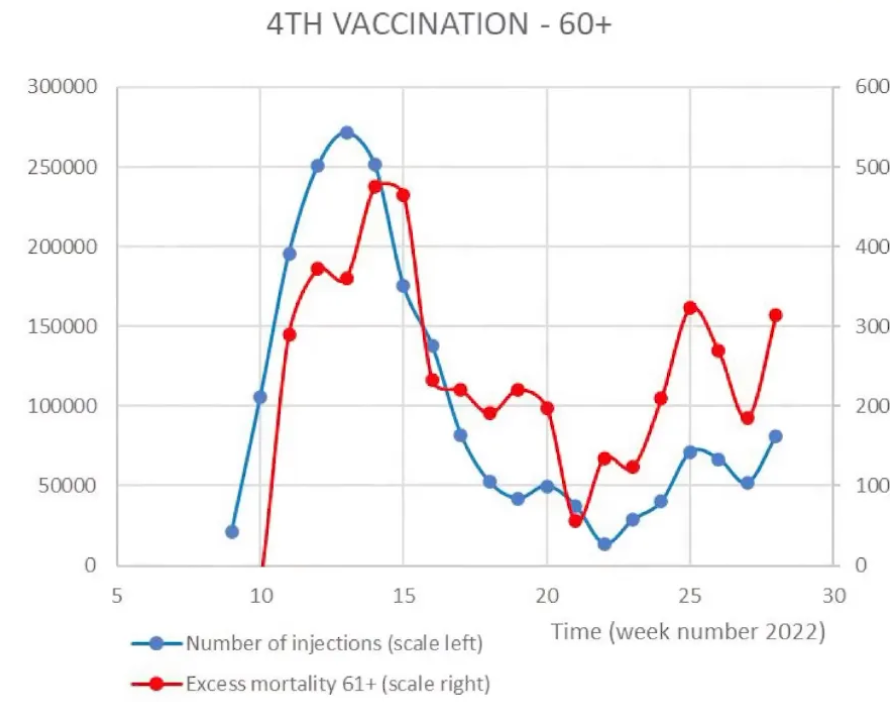
You don’t understand “revolutionary suicide”. But you need to understand it – and soon.
Those who believe in “revolutionary suicide” for most of humanity as a “solution”, are acting on that belief, because “there’s no time”.

This message about “there’s no time” was not meant as much for you, as it was meant for the people with the pitchers of Koolaid, and the people with the guns, stationed around the perimeter of the compound.
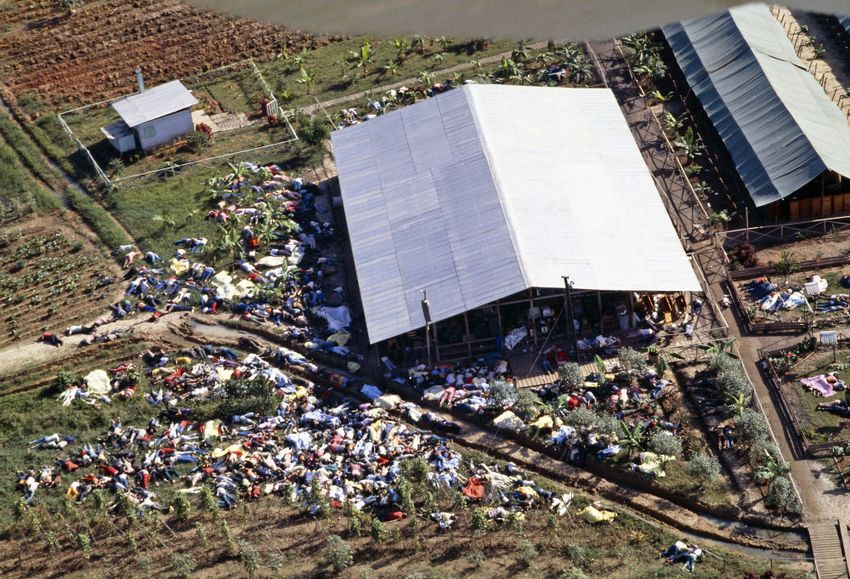
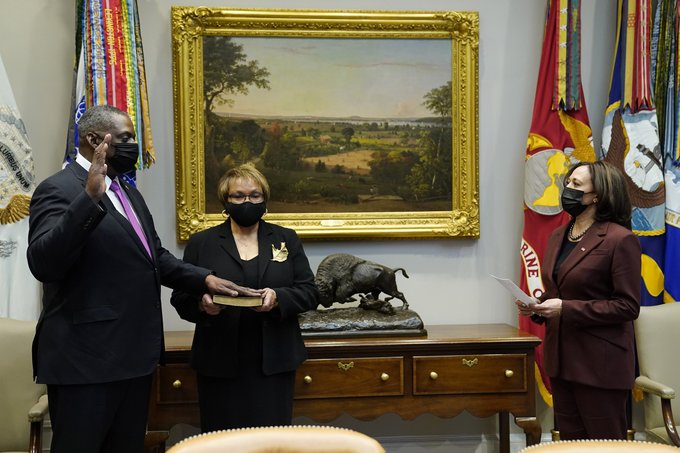
Put on your seatbelts. The truth about what is going on is going to blow you away.
Those who first noticed and described the “religion of climate change” likely had no idea that they were literally correct, but they were. It’s a cult.

The Frankfurt Marxist experiment called “Peoples Temple” and its fateful concept of “revolutionary suicide” explains all aspects of the current deadly social experiment, from Green New Deal, to Great Reset, to the semi-failed population control shot, meant to transition us into integrated population control as part of [socialized] medicine.
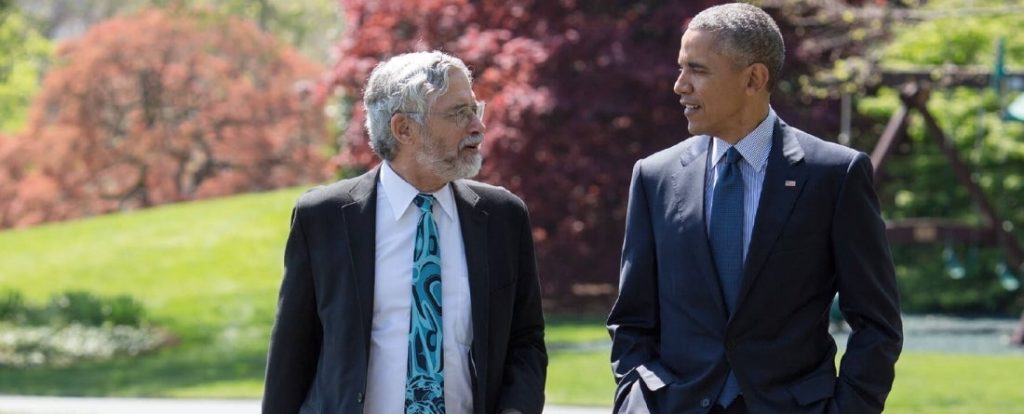
The climate-conned progressives had a dream. That dream, being built on a stolen election, is already “pre-failing”, but not fast enough.
Something is Looming Geopolitically, and We Better Start Taking It Seriously
August 18, 2022 | Sundance | 1,297 Comments
I will tell you what I told Sundance.
We are dealing with a cult. As in the case of many cults, they are a group of well-meaning, good-intentioned people, who have a bit too much faith in their human leadership obsessed with human solutions, and not quite enough faith in God.
When the convincing argument met a pesky commandment, exceptions were made.
Now before you tell me I’m wrong, and that they’re all distinguishably and remarkably evil, unlike us, the good guys and better girls, take a minute to cool off and remember why your Bible said why we should not take too much pride in ourselves, my fellow sinner. Kurt Vonnegut turned the clarity of his PTSD-enhanced vision for our hypocrisy into a career. We could all use a bit of that vision.
Oh, there is evil mixed in – swirled into the goodness like poison until it’s tasteless – and that’s exactly why it’s hard to detect.
It’s easy to think of cults as purely evil and therefore incomprehensible, but it’s not a great way to comprehend their danger. It is when you examine their humanity, as we walk among them and smile, and they smile back with an equally human face, that you see WHERE and HOW the danger arises.
I have learned so much about God in following this story. Hopefully some of that EXTREMELY important part will help to freely convince you that you, too, need God – even if that God exists for you in the most abstract way possible – to keep you from falling into mental traps which, paradoxically, come from our human self-reliance and “realism”.
God is a weird idea that almost has to exist by emergent self-creation from our reality, like calculus does. Where does God come from? For that matter, where does math come from? What is the weird mathematics of infinity a subset of?
Simply believing there is more, and that it is not inherently against us, but for us, as demonstrated by our own existence, seems to be key to avoiding error. If you can accept that much of a Cartesian “God”, good. It is enough.
Ground yourself in God before you go on reading this. It is our lifeline back from diabolical error.
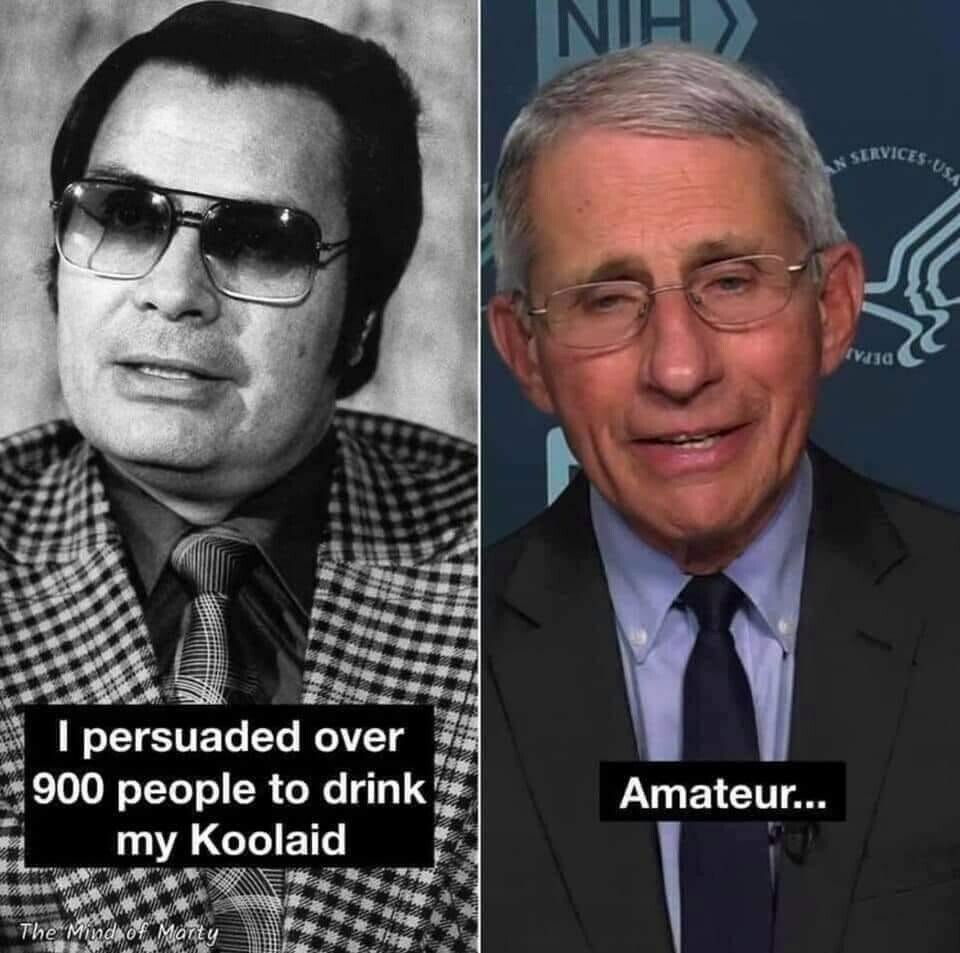
Why [Sometimes] Jones Was Right and We Were Wrong
I’m shocking you with that title of this section for a reason.
Jones was not right about everything, obviously. But he was right about enough, that if you can use that to begin to understand his motivations, and his correct thinking on some things, you can see where and how he and his followers were led astray.
This quality of being “right about too much, but misleading in the end” is VERY typical of communism, and Jones was, if you read Peoples Temple thinking, a communist of the Frankfurt School type. His Peoples Temple was a living experiment in resolving all the accused bugaboos of Western society – the “oppressions” – that critical theory challenged.
Jones saw unnecessary, systemic, racial problems and wanted to do something about them. Jones saw marginalization of women and felt it inherently wrong. Jones saw the collectivist aspects of earlier forms of Judaism and Christianity, and felt that they could not be ignored. Ironically, he did not see the power and possibility of the “greatest collective” – all of us living independently and harmoniously in a free and truthful world – but that is what made Jones perfect as a micro-reactor experiment for the creation of a very progressive “woke Christianity”. And that is exactly what he was. Woke Christianity, only 40 or 50 years ago.
Jones saw that American Christianity could be made more “social” – or socialist – and discovered that it actually worked, when judged by metrics of earthly success.
When I began to read some writings by a leftist sympathizer of Peoples Temple, based largely on the viewpoints of insiders and survivors, and she described my own deficient thinking about the People’s Temple correctly, and how I was part of the misunderstanding and minimizing thereof, I gained deep insight into not only the truly leftist nature of the Peoples Temple, which was clearly a fellow traveler of cultural Marxism, but also how seductive both critical theory is, and the Peoples Temple was. Even the analysis itself was seductive, in correctly describing the flaws of my own views of Jonestown. However, the devil is in the details, because sympathy for the people of Jonestown can easily whitewash the truth about bitter flaws in their collective, and collectivist, dream.
In the end, it’s Jesus versus Stalin. Stalin, sadly, beat Jesus in the world of Jim Jones.
Stalin will mislead you into demanding or committing harm of others for the good of the whole, whereas Jesus will lead you as an individual into sacrifice of self for the good of others.
It’s a subtle difference, but it makes all the difference in the bigger outcome.
To gain the same insights I got, you can beneficially read the same writings I did. Start here.
LINK: https://jonestown.sdsu.edu/?page_id=29475
ARCHIVE: https://archive.ph/N2pWf
Not the least reason to read this, is that it reviews the FACTS of the history and the shocking, sad end of the Jonestown experiment.
Even more importantly, this reading exposes and explains strong parallels to the Climate Cult. It does so by exposing the thinking of Peoples Temple members from the inside. This thinking very obviously maps to the thinking of the Climate Cult.
Formation of the collective – mass formation psychosis – creates a world layered on this one, beautiful and addictive as hell, and soon to be enhanced by the “metaverse”. But threaten that world, or merely create the perception of threat, and the mass can be manipulated into remarkable behaviors.
Ah, the FURY that Malone’s utterance of “mass formation psychosis” provoked in the media.
THEY KNEW.
(Hat Tip Tonawanda)
To provide some contrast with the Jonestown collective’s broken view of itself, I am providing a short “outsider bibliography” on the Jonestown cult, which is differently broken, as you can see from the demonstrated preconceptions, psychological defenses, and capitalist myopias that the insider narrative points out. But be careful. Sympathy for the Jonestown victims, and understanding of them as good people much like us, can lead to sympathy for the devils that seduced them. Just because our devils hounded them, doesn’t mean that their devils didn’t destroy them.
Same goes for the Climate Cult.
If you ever had any sympathy for the Branch Davidians, you will get what I’m saying. It is much easier to see the evil in Cankles and her crew of nogoodniks in the Climate [Control] Cult, by having at least some sympathy for one of their victims – the flawed Christian cult of David Koresh. (Yeah, that gets complicated.)
Anyway, some comparisons. Here – let’s trivialize the victims!
LINK: https://www.vox.com/2015/5/23/8647095/kool-aid-jonestown-flavor-aid
OK, how about gritty truths wrapped in the final assessment of “paranoid”?
LINK: https://www.britannica.com/event/Jonestown
This next one is a rough gem – very anti-Jones, but exposes the dynamic of the suicidal closest layer of followers, who are willing to be homicidal to the greater outer layer – and THAT is exactly what applies to the Climate Cult.
LINK: https://www.history.com/news/jonestown-jim-jones-mass-murder-suicide
Now – I told you that you didn’t understand “revolutionary suicide” – so let’s fix that.
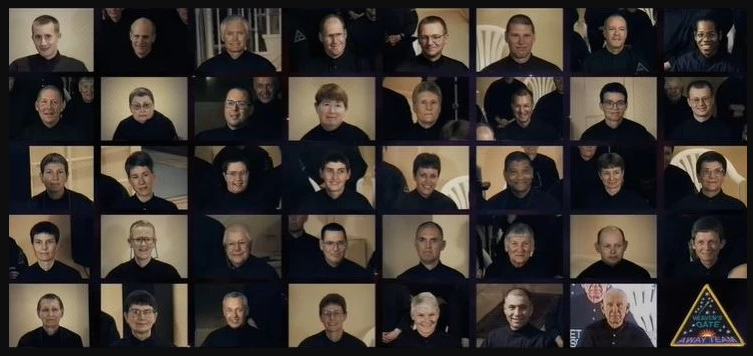
Revolutionary Suicide
What is revolutionary suicide? It is – at its core – simply taking the ultimate exit from an unjust society, instead of fighting against it. Here is Jim Jones in his own words:
We committed an act of revolutionary suicide protesting the conditions of an inhumane world.
Jim Jones, “Death Tape,” 1978
Looking beneath that statement, trying to understand what constitutes “the conditions of an inhumane world”, I believe that what we find is the failure of the Peoples Temple cult to navigate reality. Jim Jones tried everything he could, to make his utopian vision take hold in reality, but his vision ran into more and more conflicts with the real world outside his cult, until the legal and judicial systems had Jones in a state of constant challenge. Even fleeing America itself did not work. In Guyana, the conflicts grew, until legal actions against Jim Jones were imminent. Jones correctly realized that he had nowhere left to go, and thus could not maintain his vision of the Peoples Temple. Jones could not even flee to the Soviet Union – one of the options that was always on the group’s table of discussion. Jones knew that he was politically radioactive, and no longer useful to the Soviets.
“Revolutionary suicide” is the ultimate “take your bag of marbles and go home” move – but remember – THAT is also a perfect description of individual suicide.
As a number of individuals in the Jonestown cult felt the world crashing down upon them, with the increasing problems of the cult, some felt suicide was the answer. Jones was sorely tempted by this route.
I have to ask – was the Climate Cult moved ahead in its schedule by external forces? Ask the question, because it seems to me that the answer is yes. The very defects in their plan that allowed us to see it all, may have been the result of schedule changes forced by the Trump election.
Whether individuals or groups are hounded by their own perception of external criticism, or by actual hounding, it doesn’t matter – suicide can be the result. See January Sixth, as well.
The greatest moral problem with all group suicides, including “revolutionary suicide”, is that these deaths are not free of hounding or worse, this time internal, and themselves approach or even constitute murder. Hounding, tricking, and otherwise coercing the GROUP to fully participate is the reality of the act.
Innocent people who want to LIVE are forced to DIE.
Thus, there is a HUGE footprint of MURDER in “revolutionary suicide”. This is clear in the records of the Jonestown incident. A layer of “diehards” and “inner circle” were used to enforce the group decision, leaving only a few who managed to escape by using their wits.
Shades of the jab.
Most people do not want to commit suicide. Most religions teach against it. But not all, and I believe that the truest believers at the center of the Climate Cult are quite ready to kill and be killed for their goals.
If a CIA operative suggested “revolutionary suicide” to the Jonestown cult, it would not surprise me. Their collectivist nature was highly vulnerable to this form of exploitation. Indeed, the same may apply to other cult suicides.
Either way, whether spontaneous or provoked, the possibility of group error, including group entry into a suicidal choice, is a viral vulnerability of social beings.
So now, let’s apply this fully to the Climate Cult.
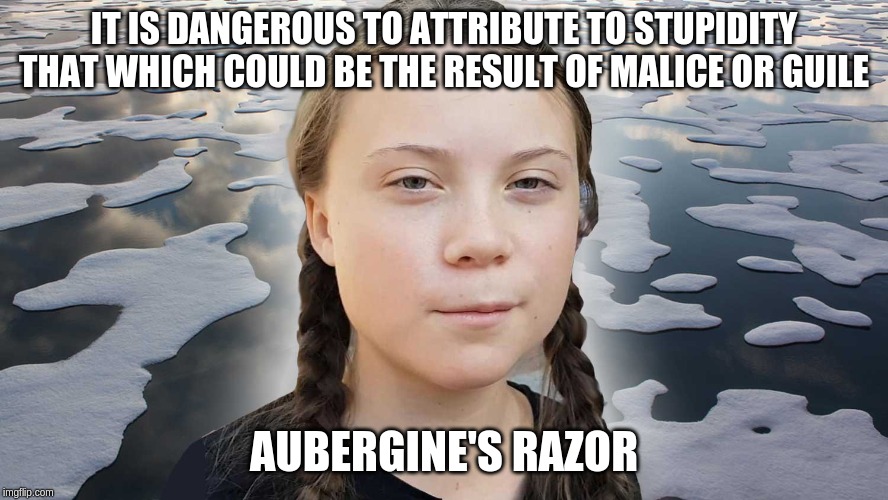
Revolutionary Climate Justice
It is my contention that the Climate Cultists who are knowingly behind the Population Control Shot are mostly recruited true believers, much like those closest to Jim Jones. This would be the most obedient layer. Beyond them, however, are many who believe most of the climate cult canon, but could not be counted on to obey morally contradictory orders such as murder or suicide.
So who took the shots? Did they all play “climate roulette”?
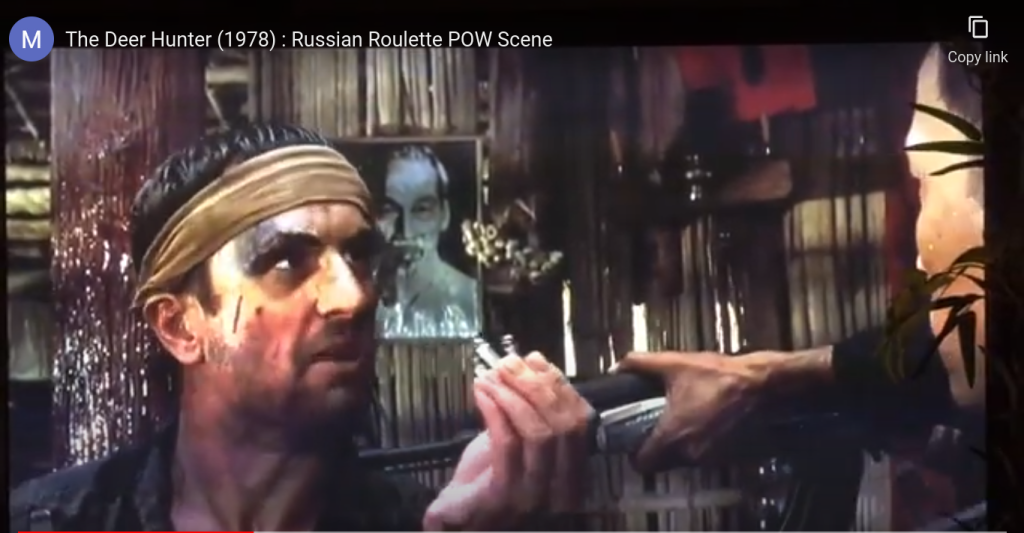
AND logic is your friend here. Some of the “knowing” likely virtue signaled to the climate goal by taking the statistically lethal depopulation shot – others less courageous and more cowardly rationalized their “need to survive for the sake of climate justice” and did not. Bill Clinton is a great example of the latter type of thinking – his view of actual obedience to feminism in men was that “exceptions need to be made for the leaders”.
Hypocrisy. It seems to be “baked in” in communism.
Either way, shot or no shot, the true-believing “there’s no time” climate cultists are, I am certain, committed to the group goal of “saving the world from climate destruction by acting now”.
You can see this in every OTHER hare-brained scheme they are rushing forward now. The “clot shot” was merely one avenue of “saving humanity”. The others are happening right now, as food and energy systems are being destroyed, both economically and physically.
Shades of Pol Pot. Who even the Vietnamese communists knew was wrong.
Yes. It’s all backwards. It’s all deluded. It’s all destructive.
They had to show us. And we are being shown.

Does this all seem a bit overwhelming? Having doubts? Is it just too much?
Here are two “public” explanations I have given for “higher credibility”. First on Steve Kirsch’s blog, then on Sundance’s post on The Burning Platform. These are the same explanation, only a bit softer and easier to digest.
Great article and statement of principled science.
People refuse to speak up about the nuttiness of it all, even though most know something is wrong, and many suspect that there is an intentional component.
I’ll spell it out. Somebody has to go first. I’m retired. I can’t lose a license or chair, or my pension (yet).
To me this was a fairly smart attempt to integrate top-decided and down-to-the-individual-tunable (see “bad batch phenomenon”) population control into medicine, and in fact a rather ingenious strategy, too. A vaccine – hero of a media-led crisis – unquestionable by the masses or the media – with a known dose-response mortality curve (see again “bad batch phenomenon”) that can in principle be dialed up to achieve ZPG, as long as denial of adverse events is enforced by holding all questions outside the Overton window. The dual nature (decrease BOTH longevity and fertility/productivity) is quite smart. It’s a bit “cinematic” and even “sci-fi”, but it worked pretty well due to human psychology.
The phony climate crisis (“there’s no time!”) was surely used to recruit many of the needed life scientists to carry it out or protect the plan. THAT was ingenious. Use an alleged crisis in one part of science to find unquestioning believers as recruits in a different part of science, who could “do something” about it.
Something very interesting here, is that this theory – which I find neatly explains all the “mistakes” people in charge have made – is crystal clear once you have “sympathy” for solving the population problem. Our leaders have encouraged desperation over the “climate crisis” in the susceptible population, and scoffing in the remainder – a very useful division for concealing the plan. The desperation messaging thus bounces off the very people who would have any inclination to look critically for such a plan or planners. Those people don’t understand the desperation of a scientist driven to “save humanity”, and thus would never bother to REALLY look for such a plan. It just seems too fantastic. One has to open up to the possibility that they might, in principle, be right, just to make the idea conceivable. But just try it. What if people REALLY BELIEVED we were going to all die in ten years, or some other typical “climate scare story”? Would you “join a global team out to save the planet”? Almost sounds like something people have been trained to do by our “entertrainment”.
So have sympathy for the devil – I mean the plan – or at least its motivation – the idea that people who really think we all will die if some are not sacrificed now – why then it all makes sense.
Now, as Steve points out, the numbers aren’t there yet on the shot, although I suspect that the long numbers on cardiac and immune deaths are more than we know yet. And beyond that, perhaps this is a bit like Hiroshima and Nagasaki – a THREAT to force us to get population under control by other means. I suspect they have a strong “Plan B” for us catching them. What is it?
I don’t like being brought to a negotiation at gunpoint, and having grabbed their gun, I’m a bit pissed. But nevertheless, here we are and it is now (and I know that what I’m selling smells like moonshine, but bear with me). Are they going to try something else, or are we going to talk about this reasonably? Judging from CDC falling back to the real science now, methinks the inevitable cover-up is going on. While I myself hang around with a crowd that screams “tribunals”, and look across the aisle at Democrats who would be the first to cry “amnesty for the climate do-gooders” (I suspect the plan counted on this), I think it does behoove us to make this stuff not able to happen again, as the most important solution. Whatever phony “lessons” come out of CDC, just ain’t gonna cut it. Human science and medicine have been damaged incredibly, but I think not irreparably, as I have faith in the truth winning in the end.
I know it all sounds fantastic, but go back over the “errors” people have made, driving toward “fair” universal deployment of the shot, and imagine that they were “trying to help”. Things start to make sense. But yes – it would be a bit cult-like, and it helps VERY much to read about the very lefty People’s Temple and “revolutionary suicide”, which is almost a model for this.
LINK: https://jonestown.sdsu.edu/?page_id=29475
Good work, Sundance.
I will say this. These are NOT unforeseen consequences. They are “necessary consequences” in the eyes of the true-believing “climate cult”. A literal cult which was very intentionally created. Created to do exactly what it’s doing. And I have some new thinking on it that is difficult to speak just yet, but essential to understand.
I am now absolutely convinced that the “dumb vaccine” was a very intentional plan by these same people to achieve the same goal.
When people assert that the CIA was behind Jim Jones and Jonestown, or studied Jonestown – oh – they don’t know the half of it.
THIS is essential reading: https://jonestown.sdsu.edu/?page_id=29475
If you know anything about the Frankfurt school, their fingerprints are all over this lab experiment.
They were WAY ahead of us.
In the last couple of days, I have come to understand the relationship of Jones as a model for the Climate Cult. Even the race obsession and CRT figures into prepping this psychological attack on humanity. The weird racial and sexual psychology of that cult was a key feature, also present now.
There is a joke meme about Jonestown and Fauci, but ironically, the very communist followers of Jim Jones who survived have an excellent, critical theory-based, Frankfurt-school critique of how we, the capitalist dupes, joke about their “revolutionary suicide”, as they called it, and don’t take anything they did seriously.
They can describe us accurately. We need to describe THEM accurately. This is no longer a joke.
That mentality has been WEAPONIZED against not just America, but THE WORLD.
I’ll have more about this later today, in my “population control shot” series.
The point is, it all ties together. “They” – whoever “they” are at the top – have used a CULT they have created – to “downsize” and “disempower” humanity against its will, in defiance of all common sense.
It’s VERY culty behavior – the irrationality and schizoid behavior of the key participants (Pete Buttigieg and his SUV-to-show-bike stuff) is a feature, not a bug.
Hopefully those explanations have helped you formulate your own opinions – whether you now think I’m onto something, whether you just can’t buy any of this stuff, or something in between.
Either way – where do we go from here?
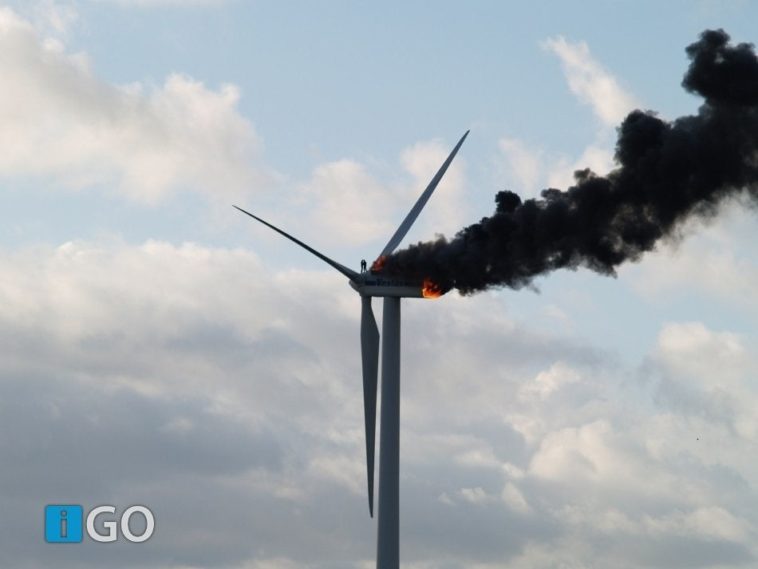
Reject Climate Insanity Completely
The world is being destroyed by foolish choices, based on insane “solutions” to BAD SCIENCE which was LOCKED IN BY MONEY.
But don’t worry – we have time.
Trump is right – we can “build back a third time” after their latest destruction, even if many lives are lost or worsened in the process.
It’s tough, but accepting bad elections has consequences. Both GOPe and RINOs need to suffer for their sins. Smart solutions will now take time, where rush jobs (like AGW) lead to HACK SOLUTIONS like Windows Me or the spike protein, take your pick.
I’m not in a rush – I think we can wait until we’re at the brink, so that everybody agrees – this is all nuts.
BUUUUUT – I do have a solution, of how to get to that brink of “all the sane people agree” much faster.
In many ways, I am going to back up Sundance’s approach.
FIRST, we (ourselves) need to quit pretending.
Quit Pretending
August 15, 2022 | Sundance | 1,107 Comments

Stated differently, SCREW THE VIRTUE SIGNALS. We can’t afford to politely agree with the CRAP any more. Let people KNOW that it’s crap, that you don’t agree with it, and that you will not vote for anybody who even puts up with the crap when THEY are faced with it.
The CRAP is destroying the world, and WE don’t go along with it.
I repeat. You need to stop virtue signaling to the mainstream narratives, and most importantly THE CLIMATE NARRATIVE, in any form.
It you want to know the ONE REASON why Trump was not “allowed” to be President, I can tell you with near certainty – it is because he REJECTS the “climate games” in their entirety.
Trump LOVES the environment, but he REJECTS the weird corporate “bad science” that was layered into it, with the absurd CO2-based climate change story. And so do I. I reject their bad science and even more their toxic workarounds that stem from the bad science.
[Note: I have watched “climate science” from the beginning, and I have NEVER seen science that convinced me of anthropogenic global warming climate change being real – much less a threat to humanity, even if it was real. Indeed, I see an incipient ice age as the far greater threat – and one that is EASILY dealt with by following the path we were on before SOMEBODY decided to downgrade humanity rather than upgrading our technology. ]
No. Just NO. We don’t put up with climate insanity (please call it that), nor do we put up with those who TOLERATE IT. Not just those who advocate it. Those who TOLERATE IT.
And THAT gets to the SECOND point.
This point bears on Sundance’s shrewd recognition of the “DeSantis problem”.
We need to goad all GOP candidates into the “WEF unacceptable zone”.
Why is DeSantis acceptable to the establishment Republicans? Is it because he will tolerate climate nuttiness? The ONE necessity for a nod from Davos?
Personally, I like DeSantis, but I see clearly that the other side is using him to derail Trump. They have a smart strategy there. Evil, but smart.
Well, one way to thwart that is for DeSantis to join Trump in denouncing the climate insanity in no uncertain terms. In terms that are so strong, they make him utterly unacceptable to WEF and the quislings in GOPe.
“It’s wrong. It’s a hoax. It’s destroying the planet. It has to stop.”
And then, to spread it, a little criticism of even the slightest climate belief as a RINO position should put the fear of God in Washington.
Oh, DeSantis’s RINO advisors will go through the ROOF, but tough times call for tough measures. Klaus Schwab, Larry Fink and the Rothschild entourage need to burn in anger at the rejection. And while we’re on Fink, ESG needs to DIE. Kill it, before it kills humanity.
Climate insanity is crap, and it needs to end. NOW.
This means that a lot of GOP need to feel the STING – the BURN – of rejection.
When they so much as NOD to the bullshit, they PAY WITH THE BASE.
Are we clear? GOOD.
BURN THEIR GOD, CLIMATE CHANGE, AT THE STAKE.
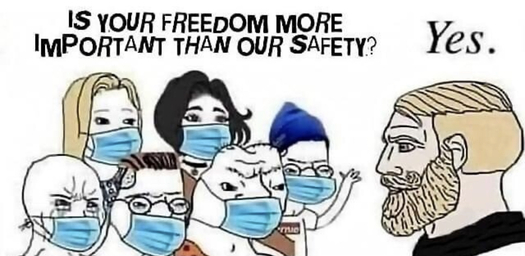
Final Thoughts
We have to grab the steering wheel. It’s that simple. We’re not going to kill anybody. We’re not going to have an “insurrection”. We’re going to demand that these assholes who have fucked everything up, stand down with their insanity and their corruption.
EVERY. SINGLE. FUCKING. DAY. You are going to have to make these people feel like CRAP for supporting INSANITY and causing HAVOC.
Get tough. It’s the only way forward. But you can do it.
W
